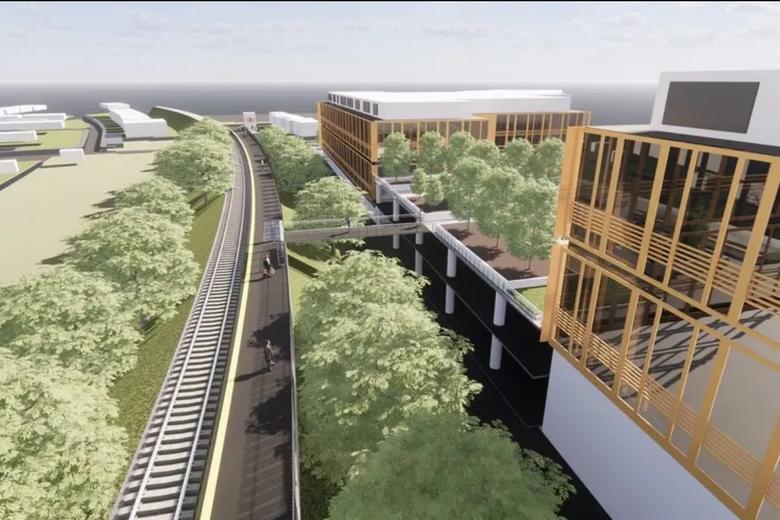KOFI IDDRISU

KOFI IDDRISU
An enterprising medic sets up the world’s first African Instagram archive
Published: 28 OCTOBER 2024
Author: Richard Lofthouse
Share this article
Kofi (Trinity, 2021) Whatsapp calls from Ghana having just completed another day of pre-clinical training in Accra.
But we are not here to discuss medicine, rather his success founding and managing Archiveafrica, a purely Instagram-based digital archive of images drawn principally from late-Twentieth Century West Africa, accompanied by all-important captions that explain what they depict.
There is a joyous spontaneity to it and the images are noteworthy for their vibrancy. In one, children in Ethiopia in 1935 try on gas masks, at the time of colonial assault and chemical attack by Mussolini's Italy. In another, remarkable shot, members of the white supremacist Afrikaner Resistance Movement AWB, march in 1994. In a third, a Maghrebi grips ski poles as he is about to ski a sand dune.

Each image is a glimpse onto an entire culture at a particular moment, often with comprehensive captions. Images speak across linguistic divides which is one reason why the archive has grown such a global following.
Kofi says, ‘I want to prevent the loss of memory, to demonstrate knowledge and to make it easier for people to engage. If you just say, African History’, that’s terribly daunting. If you put up an image and explain it, there you have an important fragment that might connect to a broader theme.’
Begun four years ago in 2020, Archiveafrica has attained a global audience of nearly a quarter of a million followers, and there is evidently a lot of interest in that audience from much more established institutions.
‘It’s odd because the audience is a real mixture. The archive is followed by other full time archivists in Africa Studies departments just about everywhere; places like Columbia University. Then you have enthusiasts, bystanders. But there are some prominent followers too – such as the Brazilian Minister of Culture.’
The audience distribution is not irrelevant to the subject of African history or what followers are getting from the archive, with large shares in the US and the UK, but also sizeable and at first glance more surprising additional audiences in places like Brazil and France.
‘In one instance I remember that someone in Brazil reached out to someone in Ghana, mentioning that the name for a particular soup dish was the same but they hadn’t realised it, as the result of a photo we published. These cultural transmissions reflect the history of slavery, where whole vocabularies and cooking traditions were moved overseas with slave populations, rather than destroyed.’
The photos are amazing because so often they are actually professional images, yet not sequestered in expensive picture libraries where the copyright is tied up.
‘We started with my own photos from growing up partly in Ghana, but then it was friends’ photos, and then as word spread there was a powerful peer effect leading to retired pros who had vast collections of images taken different African countries in the 1960s, 70s and 80s, with no way to express them. They have been generous in allowing me to share them – in fact I have so many right now that a queue has formed.’

Raised initially in Brent, North-West London, then returning to Ghana age 10, and attaining his first degree in human biology at Glasgow University, Kofi remembers doing an internship in 2015 that involved working alongside a surgeon who mended someone’s oesophagus with part of his colon. ‘At that moment I really thought: yes, this is for me!’
His Oxford degree was a Masters in Clinical Embryology, beginning in October 2021 at Trinity College, just after the pandemic. His great love of the camera and the still image was already well-evolved and he remembers becoming the photographer for several prestigious college balls. ‘It was a great time and it was a strange post-COVID energy,’ he remembers. ‘Someone would suddenly say at 4am, ‘OK let’s go out!’, and we did …’
He is shortly going to launch a GO FUND ME campaign towards establishing a physical museum in Wa, the northern Ghanaian city (approximately the size of Oxford, perhaps a bit larger) where his family is from, also as he notes a very important pre-Colonial emigration hub being right next to what today are the borders of Burkina Faso and Cote d’Ivoire, at a place from which if you went north you would eventually reach the Sahel, then the Sahara.
‘The crazy thing is,’ he says, ‘A Ghanaian school child is still more likely to know about the British Tudors and Stuarts than they are to know about Ghana’s own history, which is still poorly taught or not really taught at all.’
It’s a daunting mission to put this right but there are many people encouraging Kofi to push ahead and it might be in time that he can achieve an institutional support whether locally, internationally or maybe both. That would allow the photos to be organised and protected so that the archive currently floating on Instagram would have a greater sense of longevity.
The University has a programme of events for Black History Month, October 2024:















